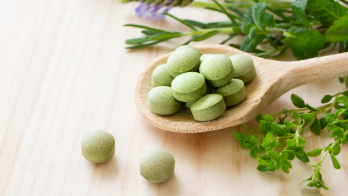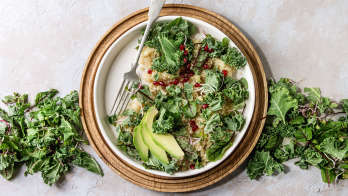L-theanine 101
L-theanine is often known for its positive impact on relaxation, but what other benefits does it have? Here’s what science has to say about this amino acid and if you should add it to your supplement routine.
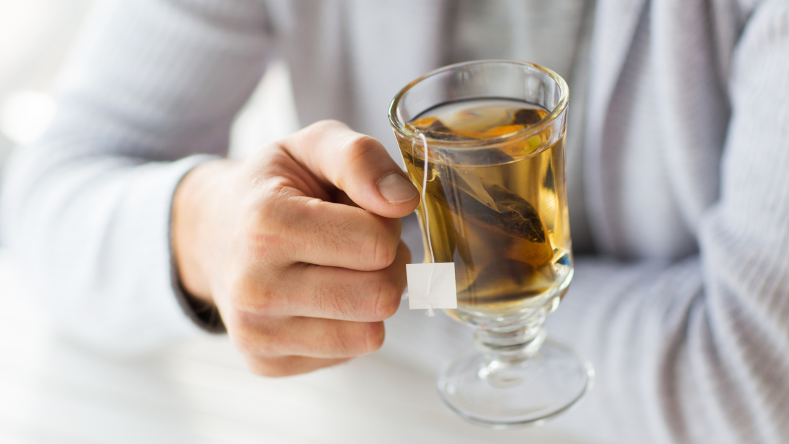
If you’re feeling drowsy, stressed, or under the weather, you may want to try adding L-theanine to your routine. But what is L-theanine, and are other health benefits associated with it? Here’s everything you need to know about this amino acid.
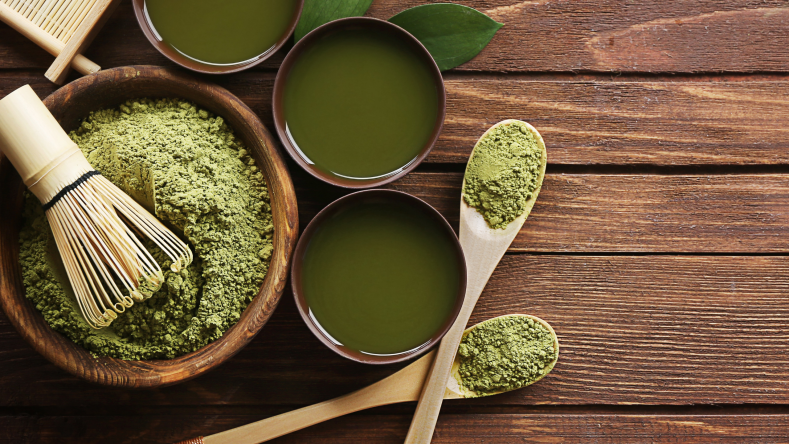
What is L-theanine?
L-theanine is a non-essential amino acid that is naturally found in tea and certain types of mushrooms [ 1
L-theanine benefits
L-theanine is best known for improved sleep and cognitive performance, but are there other benefits? Let’s see what science has to say.
Anxiety and stress relief
L-theanine might have the ability to improve stress-related symptoms (such as depression, anxiety, and insomnia). Research indicates that L-theanine may promote mental health in the general population with stress-related ailments and cognitive impairments and reduce feelings of stress and anxiety [ 2 3 4
When should I take L-theanine for anxiety?
If you have moderately severe anxiety symptoms, research shows you may respond to L-theanine when taken at a dose of 200 - 400 mg for up to 8 weeks. More severe anxiety may require amounts up to 600 - 800 mg/day divided into 200-mg increments spaced over the day [ 5 6
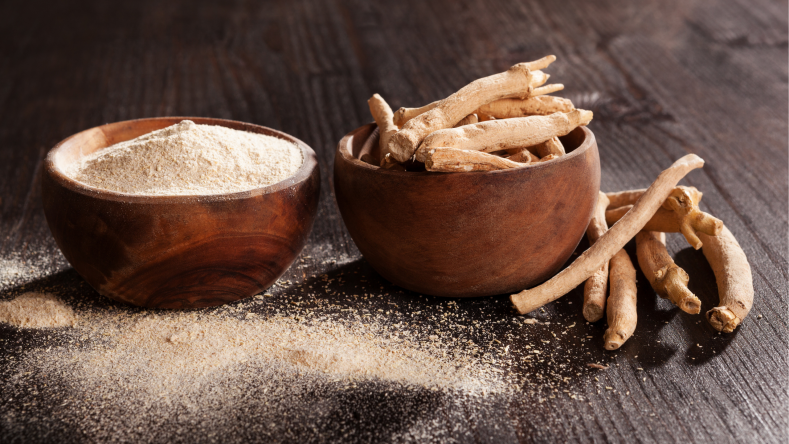
L theanine and ashwagandha
Ashwagandha 7
It’s recommended to speak with your healthcare provider before taking L-theanine and ashwagandha together, as this can help alleviate any contraindications.
Better sleep
Experts have found that people who took L-theanine experienced reduced sleep quality problems and sleep disturbances throughout the night [ 8 9 10
Studies indicate that taking 450–900 mg of L-theanine/day for eight weeks can yield greater sleep satisfaction, whereas 200 mg of L-theanine twice per day may improve sleep efficiency [ 11 12
L-theanine and melatonin
Melatonin and L-theanine are often well-tolerated and can promote a deeper, more restful sleep when taken together. But don’t rush to the store just yet–talk with your healthcare provider to see if this combination is right for you.
Focus
Pairing L-theanine with caffeine may help to enhance focus. For example, studies have found that a combination of 97 mg of L-theanine and 40 mg of caffeine could boost cognitive performance and help people focus better during demanding tasks [ 13
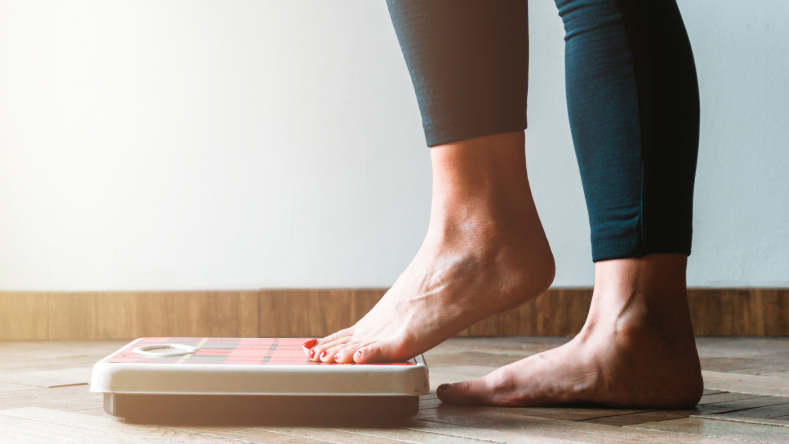
Weight management
If you want to lose weight, drinking tea may be a good choice. Studies have found that the L-theanine present in green tea creates an umami flavor, which may reduce appetite and aid in weight loss [ 14
Immune system
Studies suggest that L-theanine may benefit the ratio of Th1 and Th2 cells, which play an essential role in the immune system [ 15 16
How much theanine should I take a day?
At Elo, we generally recommend 100 mg/day of L-theanine, but this number increases to 200 mg/day for those looking to boost cognition, lower stress, and improve sleep. Because most individuals don’t consume much L-theanine from their diet, supplements can be beneficial.
The best non-supplement sources of L-theanine are green and black teas and certain varieties of mushrooms. If you’re looking to get L-theanine through dietary sources, here is a brief breakdown of the levels present in these foods.
Green tea
: One cup (200 mL) of green tea contains around 8 mg of L-theanine [17
].Black tea: One cup (200 mL) of black tea contains around 24 mg of L-theanine [
17
].Mushrooms: The mushroomBoletus badius has an L-theanine content of 17 mg/L [
18
].
Is it better to take L-theanine in the morning or at night?
Since L-theanine can help improve sleep quality, taking it at night is recommended. However, since tea can contain caffeine, it’s recommended that you opt for a caffeine-free or herbal option before bed.
Precautions
While L-theanine is generally safe and well-tolerated, it may lower blood pressure in some people and increase the effects of antihypertensive drugs [ 19
Summary
L-theanine is most often known for its positive impact on relaxation, but it’s also been found to be beneficial for sleep, anxiety symptoms, stress relief, weight management, and immunity. You can obtain L-theanine through green and black tea, certain mushrooms, and supplements, and while this amino acid is generally safe and well-tolerated, you should speak with your healthcare provider before adding it to your supplement routine.
Disclaimer: The text, images, videos, and other media on this page are provided for informational purposes only and are not intended to treat, diagnose or replace personalized medical care.
Key takeaways
L-theanine is a non-essential amino acid present in certain teas and mushrooms.
Studies suggest that L-theanine can be beneficial for sleep, anxiety symptoms, stress relief, weight management, focus, and immunity.
At Elo, we recommend 100 mg/day of L-theanine, but this number increases to 200 mg/day for those looking to boost cognition, lower stress, and improve sleep.
Talk with your healthcare provider before adding L-theanine to your supplement routine.
References
Examine.com. (2022, August 17). Theanine health benefits, dosage, safety, side-effects, and more: Supplements. Examine. Retrieved September 15, 2022, from
https://examine.com/supplements/theanine/
Hidese, S., Ogawa, S., Ota, M., Ishida, I., Yasukawa, Z., Ozeki, M., & Kunugi, H. (2019). Effects of L-Theanine Administration on Stress-Related Symptoms and Cognitive Functions in Healthy Adults: A Randomized Controlled Trial. Nutrients, 11(10), 2362.
https://doi.org/10.3390/nu11102362
Everett, J. M., Gunathilake, D., Dufficy, L., Roach, P., Thomas, J., Upton, D., & Naumovski, N. (2016). Theanine consumption, stress and anxiety in human clinical trials: A systematic review. Journal of Nutrition & Intermediary Metabolism, 4, 41–42.
https://doi.org/10.1016/j.jnim.2015.12.308
Yoto, A., Motoki, M., Murao, S., & Yokogoshi, H. (2012). Effects of L-theanine or caffeine intake on changes in blood pressure under physical and psychological stresses. Journal of physiological anthropology, 31(1), 28.
https://doi.org/10.1186/1880-6805-31-28
Lopes Sakamoto, F., Metzker Pereira Ribeiro, R., Amador Bueno, A., & Oliveira Santos, H. (2019). Psychotropic effects of L-theanine and its clinical properties: From the management of anxiety and stress to a potential use in schizophrenia. Pharmacological research, 147, 104395.
https://doi.org/10.1016/j.phrs.2019.104395
Sussex Publishers. (n.d.). L-theanine reduces symptoms of anxiety. Psychology Today. Retrieved September 15, 2022, from
https://www.psychologytoday.com/us/blog/integrative-mental-health-care/201703/l-theanine-reduces-symptoms-anxiety
Scientific assessment of the synergistic effects of L-theanine and ashwagandha. NutriScience Innovations, LLC. (2021, July 19). Retrieved September 15, 2022, from
https://nutriscienceusa.com/insight/scientific-assessment-of-the-synergistic-effects-of-l-theanine-and-ashwagandha/
Hidese, Ogawa, Ota, Ishida, Yasukawa, Ozeki, & Kunugi. (2019). Effects of L-theanine administration on stress-related symptoms and cognitive functions in healthy adults: A randomized controlled trial. Nutrients, 11(10), 2362.
https://doi.org/10.3390/nu11102362
Kim, S., Jo, K., Hong, K.-B., Han, S. H., & Suh, H. J. (2019). GABA and l-theanine mixture decreases sleep latency and improves NREM sleep. Pharmaceutical Biology, 57(1), 64–72.
https://doi.org/10.1080/13880209.2018.1557698
Williams, J., Kellett, J., Roach, P., McKune, A., Mellor, D., Thomas, J., & Naumovski, N. (2016). L-theanine as a functional food additive: Its role in Disease Prevention and Health Promotion. Beverages, 2(2), 13.
https://doi.org/10.3390/beverages2020013
Sarris, J., Byrne, G. J., Cribb, L., Oliver, G., Murphy, J., Macdonald, P., Nazareth, S., Karamacoska, D., Galea, S., Short, A., Ee, C., Birling, Y., Menon, R., & Ng, C. H. (2019). L-theanine in the adjunctive treatment of generalized anxiety disorder: A double-blind, randomised, placebo-controlled trial. Journal of psychiatric research, 110, 31–37.
https://doi.org/10.1016/j.jpsychires.2018.12.014
Lyon, M. R., Kapoor, M. P., & Juneja, L. R. (2011). The effects of L-theanine (Suntheanine®) on objective sleep quality in boys with attention deficit hyperactivity disorder (ADHD): a randomized, double-blind, placebo-controlled clinical trial. Alternative medicine review : a journal of clinical therapeutic, 16(4), 348–354.
Giesbrecht, T., Rycroft, J. A., Rowson, M. J., & De Bruin, E. A. (2010). The combination of L-theanine and caffeine improves cognitive performance and increases subjective alertness. Nutritional neuroscience, 13(6), 283–290.
https://doi.org/10.1179/147683010X12611460764840
Cummings, D. E. (2015). Taste and the regulation of food intake: It’s not just about flavor. The American Journal of Clinical Nutrition, 102(4), 717–718.
https://doi.org/10.3945/ajcn.115.120667
Juszkiewicz, A., Glapa, A., Basta, P., Petriczko, E., Żołnowski, K., Machaliński, B., Trzeciak, J., Łuczkowska, K., & Skarpańska-Stejnborn, A. (2019). The effect of L-theanine supplementation on the immune system of athletes exposed to strenuous physical exercise. Journal of the International Society of Sports Nutrition, 16(1).
https://doi.org/10.1186/s12970-019-0274-y
Li, C., Tong, H., Yan, Q., Tang, S., Han, X., Xiao, W., & Tan, Z. (2016). L-Theanine Improves Immunity by Altering TH2/TH1 Cytokine Balance, Brain Neurotransmitters, and Expression of Phospholipase C in Rat Hearts. Medical science monitor : international medical journal of experimental and clinical research, 22, 662–669.
https://doi.org/10.12659/msm.897077
Keenan, E. K., Finnie, M. D. A., Jones, P. S., Rogers, P. J., & Priestley, C. M. (2011). How much theanine in a cup of tea? effects of tea type and method of preparation. Food Chemistry, 125(2), 588–594.
https://doi.org/10.1016/j.foodchem.2010.08.071
Li, J., Li, P., & Liu, F. (2008). Production of theanine by Xerocomus Badius (mushroom) using submerged fermentation. LWT - Food Science and Technology, 41(5), 883–889.
https://doi.org/10.1016/j.lwt.2007.05.020
Yoto, A., Motoki, M., Murao, S., & Yokogoshi, H. (2012). Effects of L-theanine or caffeine intake on changes in blood pressure under physical and psychological stresses. Journal of physiological anthropology, 31(1), 28.
https://doi.org/10.1186/1880-6805-31-28


